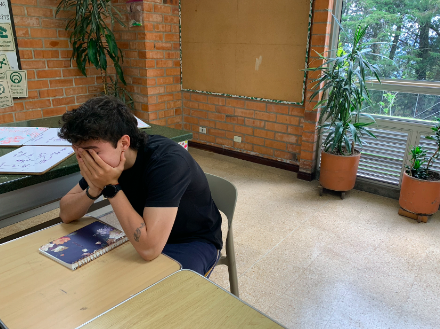Through the Eyes of an Americanah
Along the lines of Americanah, Ifemelu says, “Why did people ask ‘What is it about?’ as if a novel had to be about only one thing.” It seems as if author Chimamanda Ngozi Adichie followed her character’s opinion, as we perceive the weight of race and class in a profound love story. Adichie’s third and most ambiguous novel manages to expose realities of our society, while exploring the life of two lovers who part ways in pursuit of a better life- only to find that the human experience often involves feeling like an outsider.
A wise woman from Nigeria, Ifemelu, is planning her return to her home country from the US. The novel backtracks to her teenage years with her lover Obinze, when she decides to move to America for college. Her initial shock can be compared to Selin Karadag’s character in Elif Batuman’s The Idiot. They both discover that their backgrounds define their experience, despite how much they tried for it not to. This inspired Ifemelu to launch an opinion blog called “Raceteenth and Various Observations about American Blacks (Those Formerly Known as Negroes) by a Non-American Black”. She thrives as she seeks realness, having encountered several mental health and relationship challenges. Although the story of reuniting lovers is straightforward, no event completely encompasses the plot of the novel. The book has more to say than simply a reconnection as it expands to an evaluation of humanity.
Americanah is an inspection of what it is like to live as a black woman. Ifemelu’s story, which displays both sides of the immigrant narrative, shows tremendous growth and self-actualization, as she faced constant changes in values when leaving home only to later return. Upon discovering the standards set upon her, Ifemelu faked an american accent and straightened her kinky, curly hair with chemicals that burned her scalp. In her blog, she found strength within herself, to eventually discuss her struggles as a black woman in America and take part of a wave of acceptance within her community. Not all coming-of-age novels emphasize the idea of embracing the differences that represent individuals, but Louisa May Alcott’s Little Women does so as well when sisters Jo and Amy come to terms with their opposed personalities and learn to accept it as Ifemelu did. What makes her story so powerful is that anyone can relate. For black people, the representation encourages conversation and embracing what dominant cultures have labeled as unattractive. For others, Ifemelu’s confidence venture is one to be inspired from.
Adichie’s writing style is what makes Americanah an extraordinary read. She uses deliberate misspellings, intended to add cultural richness to the story, such as the title itself. “Americanah” is the term used in Nigeria for those who leave to America and return with changed perspectives. Throughout the novel there are numerous instances of accent usage, directly translated from Igbo, as a method to highlight the heritage of characters and even Adichie herself. This is commonly found adding an o’ at the end of a phrase, such as “I told he must buy it in my name o’.” Looking up the definition for unknown words is part of the reading experience, yet these interruptions are not bothersome. After all, they add authenticity. Extended metaphors with poetic language that are able to convey what has been lost and the hopes of the characters resemble those found in F Scott Fitzgerald’s The Great Gatsby. Ifemelu’s blog, filled with wry remarks, frustration and humor, develops the personality and voice that the book would not be complete without.
The novel is beloved by many, and its popularity and awards reassure that it is a story worth reading. But what makes it so special is not Obinze and Ifemelu’s love story. What resonates most to the audience is the conversation about racism. The depiction of it is not seen as an explicit call for readers to become allies, but rather used by identifying and humanizing it. The novel evaluates the reality of being black in America, like in the epistolary novel, The Color Purple by Alice Walker, that despite glorifying controversial themes, also shines light on this idea. Adichie is exceptional at exposing the contradictory narrative of the United States, a country that claims all are welcome but divides and rejects simultaneously. Ifemelu criticizes this notion, but is guilty of it occasionally with the use of fatphobic and discriminatory remarks that reveal an hypocrisy within her, challenging the idea she preaches so much about.
More than being an impeccably written book, it is an important one. Adichie’s perspective when unmasking the existence of issues across the globe, while highlighting the bond of two old lovers, makes Americanah a strong read for those who desire to be challenged and learn about genuine realities different from their own.

























